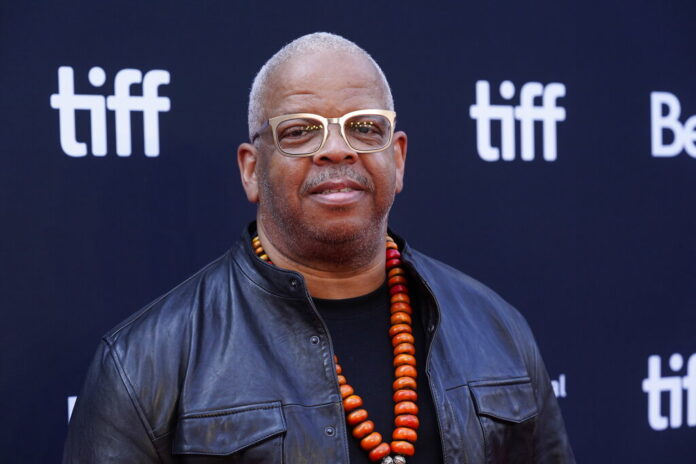
By RONALD BLUM, Associated Press
NEW YORK (AP) — Terence Blanchard, the first Black composer whose work has been heard at the Metropolitan Opera, will be given a yearlong celebration at Lincoln Center starting in March.
The Met, New York Philharmonic, Jazz at Lincoln Center, Film at Lincoln Center, The Juilliard School and The New York Public Library for the Performing Arts will focus on compositions by Blanchard, a trumpeter who turns 61 on March 13.
“I thought I was going to be a jazz musician writing for jazz ensembles all my life,” Blanchard said during a telephone interview. “When I look back now, there were amazing opportunities that came my way, and those have just opened the doors to others.”
Blanchard is a two-time Academy Award nominee and five-time Grammy Award winner. His 2019 opera “Fire Shut Up in My Bones” sold out eight performances at the Met in September and October 2021 and is being revived for the 2023-24 season.
His first opera, “Champion” based on boxer Emile Griffith, starts rehearsal at the Met on March 6 ahead of nine performances from April 10 through May 13.
“What’s unique is that Terence has found so many homes at Lincoln Center,” said Shanta Thake, the organization’s chief artistic officer. “He’s almost omnipresent. Almost every music listener or American really has heard his music at some level.”
Film at Lincoln Center will screen the documentary “Louis Armstrong’s Black & Blues” featuring Blanchard’s score on March 20, and he will attend a question-and-answer session. The library will present a panel on “Champion” on April 13.
Blanchard’s “Island Prayers” with the Turtle Island Quartet and featuring works with Rhiannon Giddens will premiere at Lincoln Center in 2023-24, Juilliard will hold workshops and Jazz at Lincoln Center will hold a two-night career retrospective in March 2024.
“I just have a fascination with music, period,” Blanchard said. “Jazz is how I entered into the business, but I grew up listening to classical music. My father loved opera. I heard operatic music. Obviously popular music of my time was something that I was intrigued by. Doing all these things, what I hope to do is just open the hearts and minds of some young kids that struggle with that. A lot of times society tells us that we have to be a certain thing, and what music has taught me is no, that’s not true. You don’t have to be defined by past labels.”



